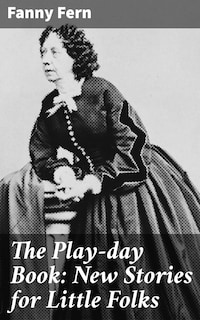Ruth Hall: A Domestic Tale of the Present Time
Unveiling Women's Struggles in 19th-Century America
Tietoa kirjasta
In "Ruth Hall: A Domestic Tale of the Present Time," Fanny Fern intricately weaves a narrative that critiques the societal constraints on women in 19th-century America. Through the titular character, Ruth Hall, Fern explores themes of female autonomy, resilience, and the struggles of widowhood as Ruth navigates the treacherous waters of familial betrayal and societal judgment. The novel's vivid prose and authentic dialogue reflect both the era's realism and Fern's keen awareness of women's issues, establishing it as a pioneering work in feminist literature. Fern's use of domestic settings to challenge contemporary norms reveals an insightful critique of traditional gender roles, resonating in a time when women's voices were often silenced. Fanny Fern, born Sarah Payson Willis, was a prominent writer and a fierce advocate for women's rights in her time. Her own experiences with poverty, loss, and the constraints of marriage undoubtedly influenced the creation of Ruth Hall, reflecting her commitment to addressing society's injustices. By leveraging her literary talent, Fern not only entertained but also empowered her readers to confront the inequalities faced by women. Ruth Hall is a must-read for anyone interested in early feminist literature or the socio-cultural dynamics of 19th-century America. Fern's eloquent yet candid portrayal of a woman's quest for independence and identity invites readers to engage with timeless issues of gender and societal expectation, making it a significant contribution to both literary canon and feminist discourse.
 Fanny Fern
Fanny Fern 255 Sivua
255 SivuaTäytä elämäsi tarinoilla
alkaen 199 €/kk
Nauti e- ja äänikirjojen maailmasta. Ilman sitovaa määräaikaa. Voit lopettaa tilauksesi milloin tahansa.



















